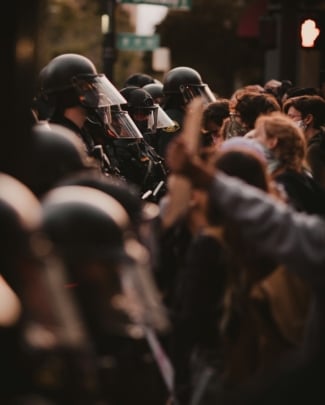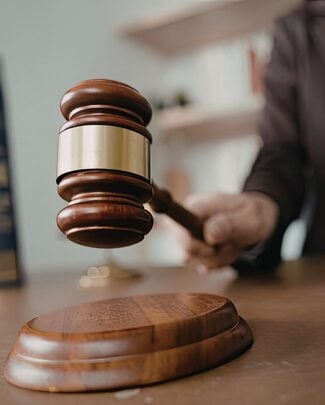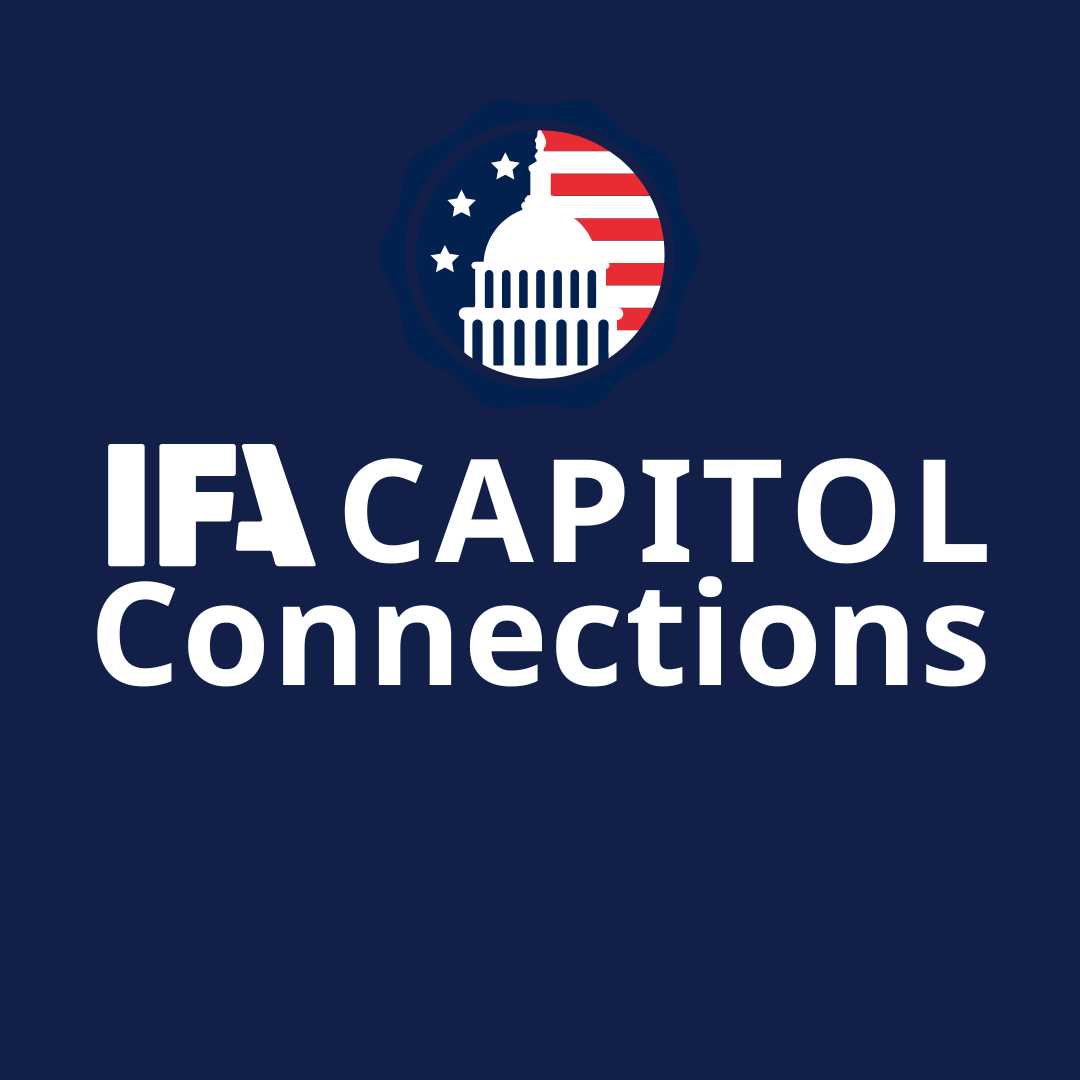WHO IS DR. ANTHONY FAUCI?
WORSHIP VIDEO: CHAIN BREAKER, YOU ARE HOLY
GOD IS CALLING THE CHURCH TO A “VIOLENT FAITH”
THE WHITE HOUSE HAS A MESSAGE FOR YOU
CORONAVIRUS PRAYER WALL: TENS OF THOUSANDS OF PRAYERS POSTED IN 3 DAYS
WHO IS DR. ANTHONY FAUCI?
Who is Dr. Anthony Fauci, a leader of the Coronavirus Task Force? We found an article from College of the Holy Cross, his alma mater, that offers some interesting insights into Dr. Fauci. We need to be praying for him! After you read, leave a comment with the prayer points the Lord impresses on your heart.
Brooklyn Born and Bred
Anthony Stephen Fauci was born in New York City on Christmas Eve 1940, the second of Stephen and Eugenia Fauci’s two children. His parents, both the children of immigrants, met as students at Brooklyn’s New Utrecht High School and married when they were just 18. He grew up in Bensonhurst, Brooklyn, where his father, a Columbia University educated pharmacist, owned a neighborhood drugstore, at 13th Ave. and 83rd St. The family lived in an apartment above the store, and all pitched in when needed—his father in the back, his mother and older sister, Denise, at the register.
“I was delivering prescriptions from the time I was old enough to ride a bike,” Fauci recalls.
Routinely cited in recent decades for the length of his work day and the peripatetic nature of his job, Fauci took on these habits early and came to them naturally. He was that kind of kid, too.
Attack the virus in prayer with the IFA Prayer Guide: Dismantling the Spirits Behind the Coronavirus. Click HERE to download.
He grew up surrounded by disparate influences that he seems to have enjoyed and that seem to have benefited him: There was his pharmacist father, known as “Doc” in the neighborhood—whom he describes as “laid back”—and his mother, also college educated, whom he describes as “goal oriented.” There was an attraction to medicine and science fostered from an early age, and a commitment to the humanities nourished by premedical studies at Holy Cross that also encompassed the study of Latin, Greek and philosophy.
And there is early evidence, as well, that Fauci had a streak in him that was something between puckish and perverse—a stubborn adherence to his own values and interests in the face of local prejudice that had to have been fierce. Growing up in post-war Brooklyn, playing baseball in Dyker Heights Park, on Gravesend Bay, in the era of Jackie Robinson and Pee Wee Reese, Fauci was a Yankees fan. Among his heroes were Joe DiMaggio and Mickey Mantle, which, he says, made him something of a sports outcast among his friends, Brooklyn Dodgers fans all.
If he had been a sports outcast, he was an athletic one. In a 1989 interview with the NIH Historical Office, he remembers, “We used to play basketball from the beginning of basketball season to the end, baseball through the spring and summer, and then basketball and football again in the winter.” When he was younger, he played CYO basketball in the neighborhood; in high school, he captained the basketball team. Today, he’s a daily runner who has completed the New York and Marine Corps marathons.
He attended Regis High School, a Jesuit school on Manhattan’s Upper East Side. And the distance he had to travel to get there is difficult to explain, for reasons of time or geography and also for reasons of culture. Time and geography matter, of course, in multiple ways: the trip took 75 to 80 minutes each way, a bus and three subways during rush hour in both directions. By rough calculation, all the time he spent commuting during his four years at Regis, it cost him more than 70 days. And he didn’t just let the time go: then, as now, he was focused and organized. He was the kid on the subway—packed up against the other passengers, elbows against his body, wrists and forearms folded inward, a book almost on top his face, reading—in his case, probably Ignatius Loyola, at some point or other, and likely in Latin.
Time and geography also matter because Brooklyn was further away from Manhattan in the 1940s and 1950s than it is today, and Bensonhurst is deep Brooklyn, just a short three or four miles—a few stops on what was then the BMT Seabeach local line—from Coney Island and the beach. New York is New York, but it’s also five boroughs and a million neighborhoods. And working class, Italian and Jewish Bensonhurst, might as well have been 15 light years away from Manhattan’s Upper East Side, then, as now, one of the country’s most affluent zip codes. . .
A Professional Lifetime in Public Service: Researcher, Physician, Administrator
Fauci has spent his entire professional career at the National Institutes of Health. He started as a clinical associate in the Laboratory of Clinical Investigation at the National Institute of Allergy and Infectious Diseases (NIAID) in 1968, after a two-year residency at The New York Hospital-Cornell Medical Center. By 1974, he was head of the clinical physiology section of the lab. In 1980, he became chief of the Laboratory of Immunoregulation (a position he still holds) and since 1984, he has been the director of NIAID.
The lab work that has dominated one major facet of Fauci’s professional life isn’t necessarily what lay people imagine. On a day-to-day basis, “doing science,” as a lot of researchers casually refer to it, encompasses most of the same administrative, and even promotional, frustrations as running a small business. Added to that are the imperatives of academic and scholarly progress: “publish or perish.”
Dr. Peter Warburton, a molecular biologist who runs a lab at the Mount Sinai School of Medicine in New York, puts it this way, “Running a research lab is supposed to be fun; you’re doing science, working hard but focusing on your research, which hopefully you love and find endlessly fascinating. But when you finally become successful enough to get your own lab, reality clicks in, and you find out how much administrative work is required to run a lab, and how little time is left to actually do the science. Suddenly, not only do you need to be a scientist, graphic artist, technical author, public speaker and politician, you also need to be a personnel and business manager—and an accountant, usually with a budget of several hundred thousand dollars a year.”
For Fauci, of course, the budget numbers are rather larger, as noted below.
At the same time that he has continued to do lab research, however, Fauci has never stopped seeing patients—and he has continued both of those kinds of hands-on work—as his administrative duties have increased, along with their attendant political and media responsibilities. While others have sometimes characterized this as a difficult juggling act, Fauci has always stressed the benefits. Others have noted them, on occasion, as well. . . .
Politically, Fauci has overseen a huge increase in the budget of NIAID. Figures in Government Executive Magazine put the Institute’s 1984 budget, at the beginning of his tenure, at about $357 million per year; the 2003 budget will be approximately $3.9 billion. In comparative terms, NIAID had moved from taking up 7 percent of NIH’s budget to taking 14 percent, and from the sixth highest funded Institute to the second.
While a great deal of attention has been focused on his work on AIDS, Fauci’s scope is much broader than that, as evidenced at the beginning of this year when he was one of the most visible of the government officials publicly discussing the threats posed by anthrax and other possible bio-terror weapons. His is the timbre of voice that one wants to hear in that sort of atmosphere: calm, reassuring, but not falsely so. He spoke the facts and had a credible record of speaking the truth under difficult circumstances.
The balancing act that he has accomplished between the various parts of his career is underscored as much by what he has not done as by what he has done. Twice, during the presidency of George H. W. Bush, he was offered the position of director of NIH, and twice, he turned the position down; on the second occasion, he did so in the Oval Office.
How AIDS Changed Medicine
It’s easy to forget, some 20 years into the AIDS epidemic, both how terrifying and chaotic the early onslaught of the disease was, and how much AIDS activism has percolated through our approach to other diseases, changing in many ways the entire doctor-patient relationship in the United States, and the ways in which drugs are tested and approved and research is funded.
As Fauci describes the pre-AIDS attitude of the medical establishment: “It was not traditional or acceptable for anyone to question what physicians or public health personnel did. ‘We knew better; therefore it should be done this way.’” Period.
AIDS changed that, he says.
“With the HIV epidemic came the birth of a certain form of activism that demanded participation in the decision making,” he says, “particularly when it was dealing with a deadly disease, for which there was no treatment.”
But those changes were not instantaneous, of course, nor were they consistent—neither within the clinical practice of medicine, nor within the medical research community. It’s easy, in retrospect, to say that “unnecessary” bureaucracy shouldn’t hold up the release of “crucial” medication. But what do those terms mean without the words “safe” and “effective”?
The relationship of doctor and patient is similarly complex. Most people would count it as progress that, over the past 20 years, physicians more often have been socialized to interact with than to dictate to their patients. And the AIDS crisis has been a key part of moving medicine in this direction. At least in the beginning, it leveled the playing field: doctors often knew no more than their patients, who were then motivated to go out and find their own answers. . . .
What Fauci has accomplished over the course of his war on AIDS is nothing short of amazing: he has managed to build a bridge between deeply antagonistic constituencies, working all the while under the relentless glare of media scrutiny. And he has built that bridge using the tools he spent a lifetime cultivating—a tireless work ethic, a scrupulous honesty and an abiding sense of compassion.
Where Does He Get the Energy?
It also helps that he has a spouse who shares his goals and values. Fauci is married to Christine Grady, who completed her bachelor’s degree, with a double major in nursing and biology, in the mid-1970s—although she might have gone premed instead. She returned to Georgetown University more than a decade later, completing a Ph.D. in philosophy and bioethics in 1993. She currently heads the section on human subjects research in the department of clinical bioethics at NIH. . . .
No fast take on the Faucis’ family life seems to be complete without the notation that they tend to all eat dinner together around 9:30 every night—testimony both to their busy schedules and to the importance that they ascribe to spending time together.
One might ask: Where does Fauci—the researcher, clinician, administrator, politician, husband, father—find the energy? The truth is the good doctor, like a long-distance runner, seems to thrive on his efforts.
When asked about his multiple roles in the fight against AIDS, he responds by discussing the multifaceted character of the disease:
“It was complex. It was a health problem; it was an ethical problem; it was a legal problem—the legal rights of these people. And I just felt that if this problem needed to be tackled, I couldn’t be completely unidimensional about it. And the more I got into the other issues, the more interesting it became, because they were all linked with each other.”
It doesn’t seem to occur to Fauci that he is doing the work of three people. For him, the key word is “interesting.” Fauci is doing what he wants to do. On all fronts. And, for the most part, it appears he always has. For his part, this makes him, among other things, an extraordinarily fortunate man; and he knows it.
(Excerpt from Holly Cross Magazine. Article by Donald N.S. Unger.)
Partner with Us
Intercessors for America is the trusted resource for millions of people across the United States committed to praying for our nation. If you have benefited from IFA's resources and community, please consider joining us as a monthly support partner. As a 501(c)3 organization, it's through your support that all this possible.


We use cookies to ensure that we give you the best experience on our website. If you continue to use this site we will assume that you are happy with it. Privacy Policy




Comments
You are right! Dr Fauci is a wolf in sheep’s clothing. A globalist and has a desires to see a reduced population in the world.
I turn him over to Jesus. God you deal with this man. Only you can open the eyes of the blind. Thank you Lord for opening my eyes. 🙌🏼
If you want to know the truth about this devil, just look up Plandemic and listen to the truth about what he and his cohorts and the U.S. evil Government did to silence Dr. Judy Mikovits. He’s nothing but a dirty rotten scoundrel who needs to be hanged for his crimes against humanity!
https://heavy.com/news/2020/05/judy-mikovits/
I find it odd to pray for a man that funded the Wuhan laboratory where the virus came, give praise to his HIV research, that traces of HIV virus are found on the covid19 virus. He is having fun, at seeing how his baby does on his population control agenda. He is also going to get richer once the vaccine is develop, and force it upon the world with all the other harmful compounds it has. There is no need to pray for him, he is already dammed. The evil side of him has taken over. I hope the President finds out, who he really has next to him. All people may start with good intentions, but once power and riches are achieved they will compromised their essence. We will all pay for all our offenses, if not in this life, on the next one, making us not closer to GOD. I will pray for forgiveness for his soul.
My prayer is that people will wake up to the fraud that is Dr FRAUDci. He doesn’t, like $hill Gate$, care for you or I or the masses. The main is a snake in the grass.
Believers: Pray for discernment which is what we need more of to the Nth power these days.
Father God bless the work of his hands. Thank you Lord for giving great wisdom and knowledge to Dr. A. Fauci in these areas. And, thank you for your protection over him and his family.
Ignoramus
Well, he certainly has a wonderful background. He is very optimistic and soothes the soul.
Blind sheep
Thank you for your commitment to our country in this time of Crisis……it is people of your character that will help us succeed and overcome!!! Psm 23:1 The Lord is my shepherd; I shall not want!!
also Psm 91-1&2 “As I dwell in the secret place of the Most High, I shall abide under the shadow of the almighty. I will say of the Lord, “He is my refuge and myr fortress; my God in Him I will trust.”
You a cattle headed to the slaughter
Thank You Lord you have it all under control! You are Sovereign and have everyone on their place …
I thank God that for such a time as this Dr. Fauci is presiding over this epidemic . Dr. Fauci first name is Anthony which means Inestimable, Suggested character quality or godly characteristic is Priceless one. Suggested Lifetime Scripture is Ps 21:6 “Yes, forever Thou dost make him most blessed: Thou dost delight him with joy by Thy presence.” I am blessed by his calm demeanor . Bless him with incite into the paths that leads to healing .
Wake up! He’s an evil deceiver!